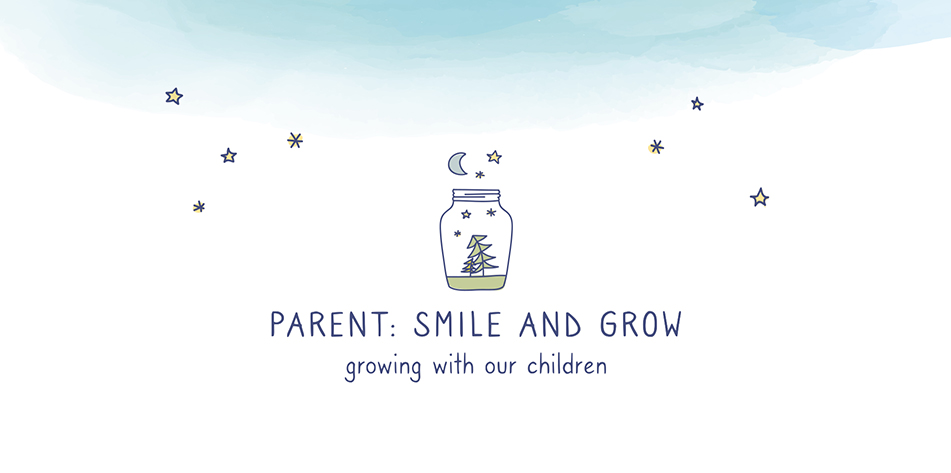How can I help my children sleep? You may have wondered, like me, from time to time.. It’s one of the most recurring topics among parents right? Do your children struggle to find their sleep, and you struggle with the urge of running miles away? Let’s take a closer look!

Table of Contents
Children’s sleep is heaven. When they sleep! How can I help my children sleep then?
If you have children, or have spent time with them, you have probably experienced the relief that floods you when you close the door of their room in the evening, imagining a few hours of adult life just for you, or for your couple.
And you probably all know the thrill that runs through your back when you hear a “Moooom, Daaaad, I can’t sleep! I’mm thirsty! Please come!”
At first you pretend not to have heard, but after 2 minutes the little voice has become a loud cry and at some point you need to avoid waking up the whole neighborhood ..
So you get up, and you hope to fix it in a few minutes. But your child’s eyes are wide open and, based on his energy level, he could go hiking up a mountain .. not quite willing to stay alone in the dark. Children’s sleep becomes a nightmare.
You stay a little longer, then try to leave the room again, and there it is. This loud cry, the weeping cry. In your head, the fight : on one hand, I want to finish my film ! (or tidy up the kitchen / talk with your friends who came for a drink / go to sleep / anything else)
but on the other, Poor honey, look at his big tears .. I can’t just leave him like that ..
And depending on your fatigue level and empathy, one of these thoughts will move you in one direction or the other .. with its consequences.
When children’s sleep moves deep, personal issues
With my daughter, we had a few small fights. For the afternoon nap as for the night. With a little hindsight, I can recognize some mistakes I made. She has trouble falling asleep, it takes her time, and so in the meanwhile she can get upset with staying in bed. She starts moving and turning around; making it actually more difficult for her to rest and let the sleep gain over her senses.
Moreover, she has trouble staying alone, calming down by her self. Probably I didn’t know how to react myself appropriately to her temperament, for lack of experience and also as a reaction to my own temperament.
On the one hand, I was convinced that she had to learn to fall asleep by herself; so I did not want to give her the habit of staying with her all the time. Except that, of course, I was only increasing her agitation by getting myself annoyed and frustrated. She could sense my irritation.
Above all, I couldn’t help it but unconsciously think that she was “doing it on purpose”, that she was so agitated because she didn’t in fact want to fall asleep in the first place, as if it were a war between me and her.
Even if I tried to control the irrational feeling I felt, it frustrated me, and I inevitably transmitted this tension to my daughter in a kind of vicious circle. But I did not want to give in; I didn’t want to tell myself, for instance, that she wasn’t sleepy and that maybe we just had to wait a bit before putting her to bed again. Simply, I had planned to do something else, nor did I want to give in, I was not flexible.
How can I help my children sleep? With flexibility !
But alas, having children is indeed an exercise of perpetual flexibility .. to wonder :
“why do I react like that, what is the behavior that bothers me?”
And this reaction that I have, is it for the good of my child, or for my own good?
(Which could be just as legitimate, but it is necessary to CHOOSE to act and not to be flooded by our own emotions in reaction to the children’s behavior).
I think I was lying to myself a bit, telling me that it was for the good of my daughter, who had to sleep to recover, because it was necessary to wake her early in the morning for me to go to work.
I now believe that the most profound reason was that I had a false conviction, a precise rule in my head, that I was not ready to leave out. That my daughter did not behave according to the rules, was just an attack on my parental authority, that showed my lack of control over the situation; even if she was only one year old and her brain just could not imagine what parental authority is.

How can I help my children sleep? Create a bedtime ritual
It was not that bad all the time, huh? I followed the advice of nursery school professionals for example, introducing night rituals.
We always went to the window to say good night to what we saw outside; read together a story; sometimes used a chime etc.
I now understand better the importance of rituals when it comes to children’s sleep. They give security to the child, allow him to have bearings, know what is happening and will happen. I also understand that I should have taken the time, the calm, to better observe my daughter, observe her while falling asleep, to learn what works best for her to regain her tranquility and give in to sleep.
How can I help my children sleep? Some theory on parents’ role
According to Lynne Murray in her beautiful illustrated book, [eafl id=”1183″ name=”The Psychology of Babies UK” text=”The Psychology of Babies”], a strategy for helping children to self-regulate when falling asleep is not to actively intervene, but to stay beside them, to observe and support any sign of the child’s ability to calm down by himself, and this, within the first six months.
The principle behind all this is to provide the child a safe setting during the preparation for sleep, built according to his specific needs. For example, to catch his first signs of sleep, to spend enough time together before bedtime, not to spare cuddles and physical contact, and so on.
The parent is there to guide, reassure, but do not act in place of the child. He does not calm the child himself, but helps him to find the right strategies for him to learn how to settle by himself.
The implementation of a routine at this stage of the child’s development, allows him not to fear sleep, but to find it without it causing him stress or tension This is the critical part, and it’s not always easy; but it’s fundamental to avoid a rise in cortisol which the baby doesn’t knoy how to handle.
Other strategies that provide for the active presence of the parent will be more difficult to change or eliminate without difficulty nor tensions from both sides.
For example, the technique that suggests to let the baby cry out for 2-3 nights until he understands that mom will not come anymore. It works very often, but at the cost of a lot of stress for the child which can be harmful and break the attunement with the parent.
Personal experiences …
Let’s go back to my daughter. I especially remember a time of great challenge for me, but that also taught me a lot.
My husband was away for several weeks, and at first my daughter suffered from it very much. Of course it was more tiring for me because I had to manage everything, all by myself. These are the dangerous elements, we learn to recognize them over time : drastic changes in routine, fatigue and stress for the parents that make it more difficult to accommodate with patience the children’s normal reactions to change.
In the evening I could not leave my daughter’s bedside. We followed our routine, put her little brother to bed, read a story. I still had the kitchen to clean, a phone call to my husband to make, maybe leave ten minutes of calm for myself, the plants to water … before I could throw myself into bed.
My daughter called me constantly. I stayed with her for perhaps half an hour, but it was not enough for her to fall asleep, and I needed to move on to the following tasks as time was limited.
…and lessons on children’s sleep
My mistake? To get nervous and irritated. Sometimes I lost control completely. Now I realize it, and that’s why I write about it.
I just couldn’t handle it, all I was asking were ten minutes for myself, and sometimes just going to bed. Instead, I should have slept with her, kiss her longer, fall asleep beside her. But a form of rebellion told me You have your needs too, don’t forget it!
What is the right balance between my needs and my daughter’s? I don’t have an answer to that, but I tell myself now, that I was the adult. It was up to me to support my daughter during her legitimate difficulty in the absence of her dad. That basically, the rules are yes important, certainly, but the exceptions are sometimes too !
How can I help my children sleep? Lots of love
Successive readings ([eafl id=”1184″ name=”Filliozat UK” text=”Filliozat”], [eafl id=”1185″ name=”Why love matters UK” text=”Gerhardt”] to name what has so far helped me the most) guided me in reviewing my certainties and understand that my priorities weren’t in the right order. I couldn’t do everything : go to the gym; clean the house; go groceries shopping at the local market; work full time; attend to the children; watch a movie or read a book in the evening; see my friends; and then feel guilty when I could not do it.
Of course, in the evening I had exhausted my own resources and was no longer able to meet my children’s needs, whereas they needed me to fill in the lack of dad, to find their safety.
I believe today that taking care of yourself is also an act of love allowing us to take care of others.
Tricks on children’s sleep
So, getting back to children’s sleep .. (I made a long story I know!) There is not a single magic solution, but several small tips to put together according to you and your child :
- Create a few repeated steps in the same order that will create a sleeping routine. Put the pajamas on; brush your teeth; read a story; give a kiss and say good night to the present persons in the house- plush included; sing a song, etc.
- Stop agitated and energetic activities, avoid the screens, create an atmosphere of calm and rest a few hours before bedtime.
- Be gentle but firm and consistent about the rules you have set about sleeping habits. Whether he can get up to join you in the living room, or sleep in your bed, whatever you decide.
- Be aware that periods of major learning or acquisition sometimes cause small problems in children’s sleep, as nightmares for example. Arm yourself with patience and understanding.
Further readings and an advice
If you want to read some more, I’ve found some very interesting websites and books too (N.B. links to Amazon are affiliates):
- “The Psychology of Babies” doesn’t cover only sleep, but it’s a very complete picture book about the first 2 years’ relationships of a new human. Such a great help in my opinion!
- “The Gentle Sleep Book: For calm babies, toddlers and pre-schoolers” from parenting expert Sarah Ockwell Smith
- This one has a really comprehensive guide on baby sleep. It’s really worth a visit! And if you live in the US, it also shares several products’ reviews.
- How much sleep do you need? The experts at sleepadvisors.com share a sleep chart according to age, and all the signs you need to check to verify whether you or your child are getting enough sleep (and how to adjust your routine if you don’t).
- This one is kids oriented, presentig a few facts and games to teach children a healthy sleep routine.
- Sleep tips for new and expecting parents! Don’t miss it as there’s so much reference on your kids’ sleep, but you shouldn’t neglect your own.
- Another great page from Sleephelp.org with a complete guide on children’s sleep.
- Here you’ll find interesting tips and suggested readings on sleep-related topics.
- Same thing here )
- And, cherry on the top, you can find some bedtime stories here!
Most importantly, as for anything that concerns life with children I think, be sure to take care of yourself.
Seek help if you’re having trouble, do not stay alone! Your child needs that you fill him with love, and for that, it’s necessary that you love yourself too 🙂
What about your story on children’s sleep? Share it with us!
Have you found this post useful? Tell your friends about it! [social_warfare]

